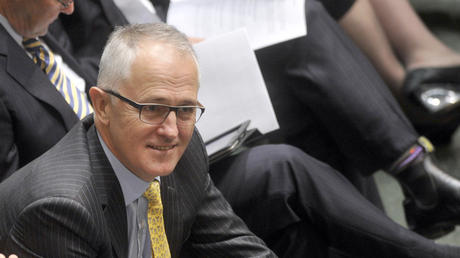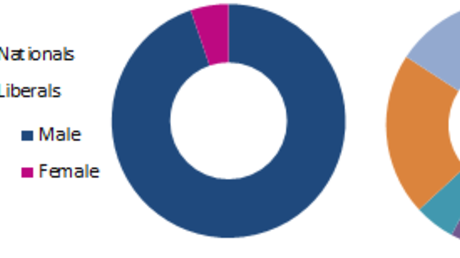
For the past three years, the Labor government under Julia Gillard lived daily with the reality that both its survival and capacity to push forward an ambitious policy agenda depended entirely upon its capacity to negotiate with a handful of independent and minor party members in the House of Representatives.
Coalition strategists at the time may have rejoiced in the misfortune of their major party counterparts, but the incoming government may be about to learn firsthand just how much fun such a negotiated existence can be.
While its survival is guaranteed by a healthy majority in the House, the new Senate when it sits post July 1st 2014 will include an almost unprecedented array of players, with no less than 11 groups represented, compared to just five in the previous parliament. This disparate band of characters is likely to make it incredibly challenging for the new government to successfully steer its program through parliament.
The Australian Greens, who despite relatively gloomy predictions and a substantial slide in their primary vote, managed to increase their numbers in the Senate to 10, are a relatively known prospect. How though, are the new players likely to shape up?
In normal circumstances we could look to the relevant party platforms to get a reasonably clear picture of how the new Senators might fall on the key issues likely to arise in the new parliament. For a range of reasons this time around, things are not quite so simple.
Cobbling together the majority .. it needs to pass its legislative program through the Senate is likely to be an interesting exercise in negotiation and diplomacy for the Coalition
First and most obviously, single issue parties such as the Australian Motor Enthusiasts Party and the Australian Sports Party have yet to publically articulate or apparently even form coherent views on key policy issues likely to vex the new parliament such as the carbon tax, the treatment of asylum seekers and paid parental leave.
Indeed, Wayne Dropulich, the Australian Sports Party’s likely Senator from Western Australia has already admitted his party is yet to devise policy positions on any non-sporting issues. His party’s slogan: ‘Are you more interested in Sports than Politics? Then the Australian Sports Party is for you!’ doesn’t appear to bode particularly well for considered policy development.
 The Australian Motor Enthusiasts Party is slightly more forthcoming. According to its website, in addition to pushing for the rights of motor enthusiasts and road safety issues, the party also supports minimal government interference in people’s everyday lives, access to education and decentralised health services. Beyond this, Ricky Muir, the party’s lead Senate candidate in Victoria, has promised to consider all the evidence when weighing up important issues and ‘try to make a decision that reflects on the everyday Australian.’
The Australian Motor Enthusiasts Party is slightly more forthcoming. According to its website, in addition to pushing for the rights of motor enthusiasts and road safety issues, the party also supports minimal government interference in people’s everyday lives, access to education and decentralised health services. Beyond this, Ricky Muir, the party’s lead Senate candidate in Victoria, has promised to consider all the evidence when weighing up important issues and ‘try to make a decision that reflects on the everyday Australian.’
Other minor parties entering the Senate for the first time, such as the Liberal Democrats and Clive Palmer’s Palmer United Party (PUP), proffer a wider range of interests, but remain difficult to read in terms of policy intentions.
The Liberal Democrats are perhaps the most consistent in terms of outlook with clear libertarian leanings – this encompasses support for minimal taxation, freedom of choice, support for same-sex marriage, decriminalisation of cannabis usage, and the winding back of gun controls – all of which fit comfortably under the rubric of a belief in minimal government intervention.
These beliefs won't sit easily with the incoming government’s paid maternity leave scheme and any tax reform or regulatory regime which seeks to increase the footprint of government.
The Palmer United Party, in contrast, has no such ideological core, instead putting forward a grab-bag of seemingly unrelated thought-bubbles, pet ideas, and anti-government gripes from abolishing the carbon-tax, to independence for northern Queensland, to restrictions on the activities of paid political lobbyists. Without commonly-held core beliefs to act as a unifying agent, the task of enforcing party unity and discipline in such parties often takes on the form of herding cats. This is particularly the case in the Senate, where the guaranteed independence and autonomy which comes from six year terms constitutes a further challenge to party loyalty.
Whatever happens, cobbling together the majority of votes it needs to pass its legislative program through the Senate is likely to be an interesting exercise in negotiation and diplomacy for the Coalition’s leadership team in the new parliament.
Any situation where a political party can surreptitiously (albeit legally) manipulate the system to win a Senate seat with just 11,000 votes demands reform
Not surprisingly, this has led to a cacophony of calls for urgent and fundamental reform of the Senate election process. Most of these revolve around measures aimed at making it more difficult for minor parties to ‘game’ the preference system by using strategic preference deals to build a quota through vote harvesting.
Suggested reforms have included the imposition of a minimum threshold that parties must achieve before being eligible to win a seat; stricter party registration laws including higher costs, an increase in the number of members required, and restrictions on double-counting members across multiple parties; and the introduction of optional preferential voting and the removal of the above and below the line distinction.
Diversity of representation is important in a democracy. But any situation where a political party can surreptitiously (albeit legally) manipulate the system to win a Senate seat with just 11,000 votes demands reform.
Any solution though needs to avoid rewarding the entrenched interests of the major parties. After all, the primary reason minor parties are enjoying increased success is not the election system itself, but the drift in support away from Labor and the Coalition as voters search for alternatives. This fact should not be lost in the rush for change.




